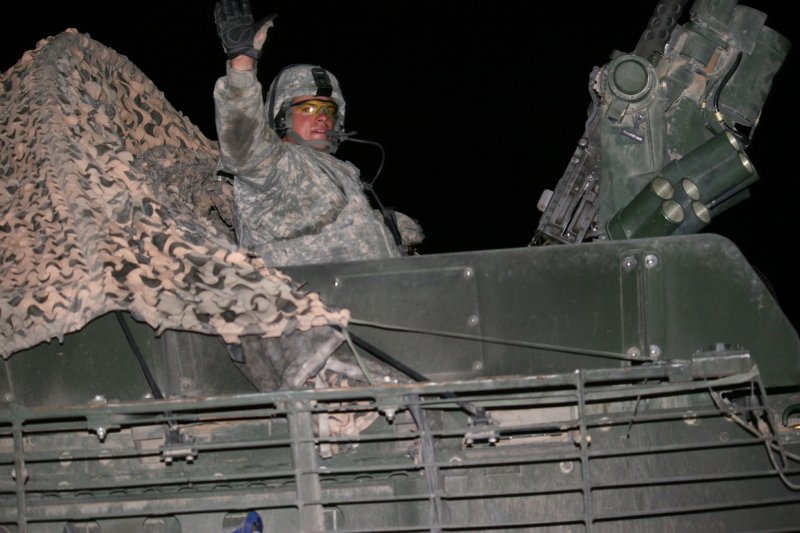A soldier with the 4th Stryker Brigade Combat Team, 2nd Infantry Division waves as he and his fellow Strykers roll across the boarder from Iraq into Kuwait in the early morning hours of August 19, 2010. The 4/2 convoyed their own vehicles out of Iraq after a year-long tour there, bringing troop levels in the country closer to the 50,000 mark. UPI/Natalie Cole/U.S. Army |
License Photo
BAGHDAD, Jan. 6 (UPI) -- Tehran backs a unified and independent Iraq while at the same time advocating a regional treaty with its neighbors, Iran's caretaker foreign minister said.
Ali Akbar Salehi, Iran's caretaker foreign minister, met with Iraq's new speaker of Parliament Osama al-Nujaifi to discuss bilateral affairs.
Salehi arrived Wednesday in Baghdad for a congratulatory visit as Iraq starts the new year with a partial Cabinet that broke a long-standing political stalemate.
Salehi stressed that it was time for foreign troops to leave Iraq and for the country to move closer to its neighbors in Syria, Turkey and Iran, the semiofficial Fars News Agency reports.
His visit coincided with the return of radical Shiite cleric Moqtada Sadr, who seemingly ended his self-imposed exile in Iran with a family visit in the Iraqi holy city of Najaf.
Sadr was in the cross hairs of U.S. military forces before he fled Iraq to pursue cleric studies in Iran in 2007. His political party in Iraq helped secure a second term for Iraqi Prime Minister Nouri al-Maliki after the Iraqi leader paid a November visit to Iran.
P.J. Crowley, a spokesman for the U.S. State Department, said during his regular briefing that Sadr was Iraq's problem now.
"Sadr is the leader of an Iraqi political party that won a number of seats in the March 2010 election and his return is a matter between him and the government of Iraq," he said.





